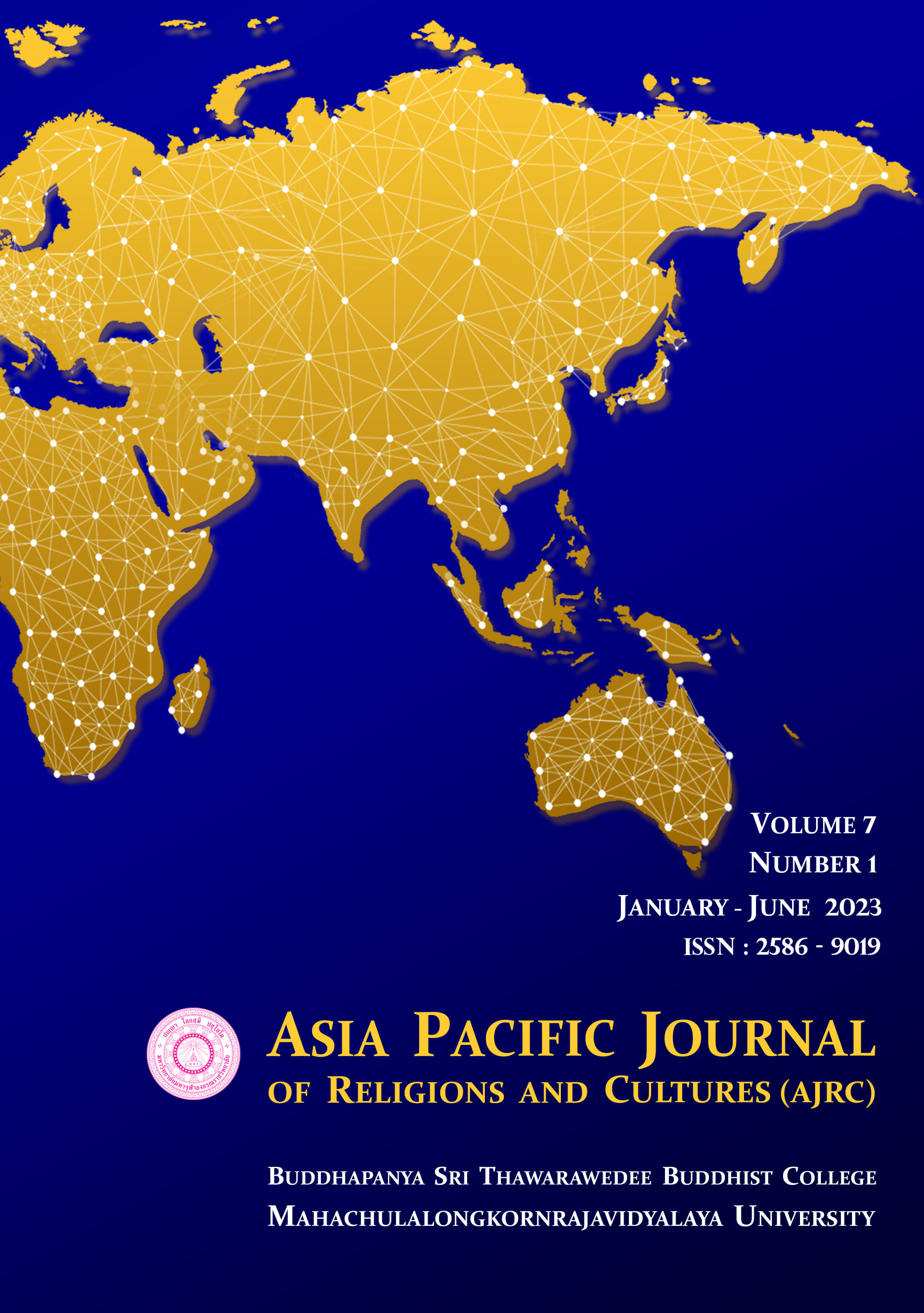POLICY EVALUATION OF HIGH-LEVEL TALENTS IN GUANGZHOU CITY, GUANGDONG PROVINCE, PEOPLE'S REPUBLIC OF CHINA
Main Article Content
Abstract
The purpose of this study was as follows: (1) In order to understand the overall evaluation of the implementation effect of Guangzhou City's high-level talent policy, made up for the deficiencies of the existing research on the performance evaluation mechanism of local urban talent policy, and provide new ideas for the research on the scientific performance evaluation system of talent policy. (2) In order to understand the effect of Guangzhou City's high-level talent policy in formulation, content and implementation, and provide improvement basis for Chinese local governments to formulate high-level talent policy more effectively. (3) To provide optimization suggestions for high-level talents of local government governance in China, and promote the sustainable growth of local government economy and science and technology.
This research was a combination of quantitative and qualitative methods. The first was to collect data. On the one hand, the data were from the official data such as the annual Guangdong statistical yearbook, the Guangdong science and Technology Yearbook, the Guangzhou Yearbook and the work report of the Guangzhou municipal government. On the other hand, there were 100 high-level talents from the survey work and living in Guangzhou City. 100 questionnaires were distributed and 94 valid questionnaires were recovered. Secondly, 10 people representing the policy makers, employers and high-level talents of Guangzhou City were interviewed. The results were analyzed and reasoned by entropy method and description method, and conclusions were drawn.
The conclusions of this study were as follows: (1) Using the entropy method to measure the effectiveness and value of the indicators, the analysis showed that the overall implementation effect of the high-level talents policy in Guangzhou City was good, the policy had a significant positive effect on the development of high-level talents in Guangzhou City, and the future development of the talent policy was expected. Through questionnaires and interviews, we understood the current situation of Guangzhou City's high-level talent policy in terms of formulation, content and implementation effect. The analysis results showed that Guangzhou City's high-level talent policy covered a wide range of areas, and the key points were not prominent, and the effect of "human capital" had not been maximized. The continuity of the high-level talent policy was insufficient and lacked long-term influence
Article Details

This work is licensed under a Creative Commons Attribution-NonCommercial-NoDerivatives 4.0 International License.
References
Alexandru Volacu.(2018). Australian Journal of Public Administration. Justice, Efficiency, and the New Public Management,P.404-414.
Ahn,S.H.,Choi,Y.J.,&Kim,Y.M.(2012).Social Indicators Research.Static Numbers to Dynamic Statistics: Designing a Policy-Friendly Social Policy Indicator Framework,p.387-400.
BEKİR TAVAS.(2019).Bitlis Eren Üniversitesi İktisadi Ve İdari Bilimler, Fakültesi Akademik İzdüşüm.Principles And Application of New Public Management Approach,P.283-294.
Bardach,E.,& Patashnik,E.M.(2019). CQ Press.A Practical Guide for Policy Analysis: The Eightfold Path to More Effective Problem Solving.
Cao Xia, Wang Yangyang, Cheng Yifei.(2010).Technology and Economy.The Index System for Evaluating the Effect of Policies and Mechanisms for the Construction of High-Level Creative Talents, p.71-74.
Fan Bainai, Cheng Hongwei, Zhang Li. (2006). Journal of Public Management. Korean Government Performance Evaluation and Its Reference to China, p.21-26 + 108.
Fan Ziying.(2018).Finance and Economics Think Tank.How to Scientifically Evaluate the Effects of Economic Policy, P.42-64+142-143.
Gao Ting.(2018). Jiangsu Science and Technology Information .Research on the Development and Characteristics of Talent Policies at Home and Abroad,p.24-26+44.
Hu Shuigen, Wang Jing, park Zhongquan. (2006). Journal of Gansu Institute of Administration. Performance Evaluation and Evaluation of Korean Government, p.12-15.
Jonkers, K., & Tijssen, R.(2008). Scientometrics. Chinese Researchers Returning Home: Impacts of International Mobility on Research Collaboration and Scientific Productivity, p.309-333.
Ning Sao.(2000). Beijing:Higher Education Press.Public Policy.
Ni Xing, Fu Jingtao .(2014). Dongbei University of Finance and Economics Press.Public Management.
Stuart.S, Nagel.(1994).Changchun:Jilin People's Publishing House. Policy
Research: Integration and Evaluation.
Tummers, L., Weske, U., Bouwman, R., & Grimmelikhuijsen, S.(2016). International Public Management Journal. The Impact of Red Tape on Citizen Satisfaction: An Experimental Study, p.320-341.
Van Ryzin, G. G.(2013). Journal of Policy Analysis and Management. An Experimental Test of the Expectancy‐Disconfirmation Theory of Citizen Satisfaction, p. 597-614.
Wang Pujiao, Lai Xianjin. (2013). Journal of Peking University (Philosophy and Social Sciences Edition). Mode and Mechanism Analysis of Public Policy Diffusion in China, p.14-23.
Xiao Zhengbin, Zhu Shanding, Zhang Xiaojing.(2011). Research on Science and Technology Management. Research on Performance Evaluation of Innovative Science and Technology Talents in Hunan Province,p.48-51.
Zou Linquan .(2010). Management Informatization in China. Design of Performance Evaluation Index System for Science and Technology Innovation Policy,p.20-25.


